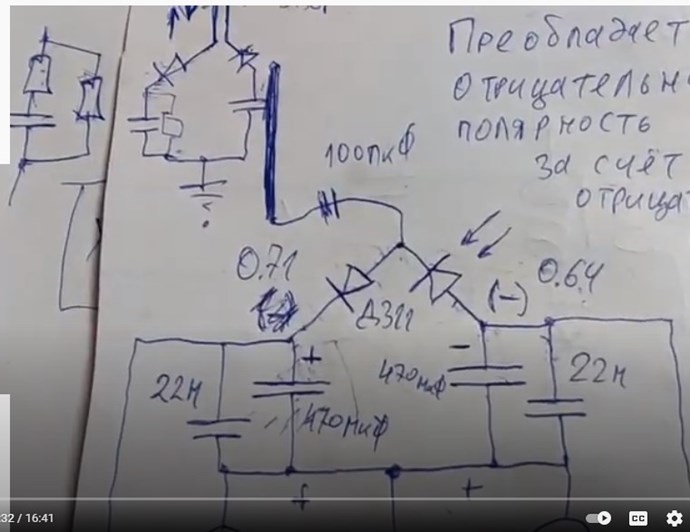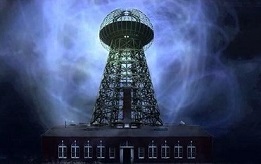I transferred my thread on Ferrite at Work here to BeyondUnity.org
Ferrite at Work
- 1.8K Views
- Last Post 18 December 2023
I transferred my thread on Ferrite at Work here to BeyondUnity.org
You're welcome ! 🙂
This is your research and belongs to our home where you are and where our entire team is.
Fighter
| "If you want to find the secrets of the universe, think in terms of energy, frequency and vibration." | ||
| Nikola Tesla | ||
WOW what a great job Fighter, it's like a Christmas present, thank you a thousand times.
Researchers can also follow this thread and its evolution
on the site here of BeyondUnity.org
Jagau
Hello,
As I promised to Jagau the import of this thread is now complete.
It has 141 posts and for each it needed direct access to our database, image importing, links, text formatting and a lot of attention to details. Plus a lot of translations from Russian to English where Google Translate was very imprecise sometimes... 🙂
As this process cannot be automated, it can be done only manually and it's very time consuming.
But it's worth the effort, in time we gonna get all our data here to home where it belongs because it's the work and the property of the members of our team.
Jagau requested here for his threads to be removed from the old aboveunity site but of course that cuckoo-boy from the old site can't do that because without the work done and shared there by our team he would have nothing on his site. 😉
As the device shared in this thread is overunity it's now officially tagged with the "Beyond-Unity" tag and I will add it to the section "Our Beyond-Unity Devices" on the right-side of our site.
Jagau, if you find any (possible) errors I've made during the import please feel free to edit/correct them.
The thread is officially yours now.
Regards,
Fighter
| "If you want to find the secrets of the universe, think in terms of energy, frequency and vibration." | ||
| Nikola Tesla | ||
Very interesting, thank you Vital cell I am going to study seriously.
I love it a lot, it gives me ideas
Tom Bearden called this massless current transfer
Jagau
Here is some explanation about "добротность" (looks like is "Q factor" in english) of capacitors. He also do some tests. https://en.wikipedia.org/wiki/Q_factor
At 14:42 he concludes: "when we have a capacitor with so big volts hold/reserve, the capacitor's Q factor increases"
At 15:59 he says: "his (capacitor's) Q-fac looks like it is lower, but it is lower because we charged it almost near to his nominal electric potential (volts)."
Here is Akula's explanation at 0: 33:
Akula says: "Those capacitors that can perceive/catch/capture backward high voltage drop/peak(*оэдс), only high voltage ones are valid. So, 400v, 60v capacitors. Right now I have 63v one and it works fine. For selfrunning (catch voltage peak) those are better. Are better because those aren't paper made, those have bigger distance/space between plates. Those are capable to catch and charge with high voltage peak that are up to 50-60v, while those don't create additional load. All 16-35v capacitors are weak for this, those above 50v catch this backward peak better."
эдс = it is electromotive force
https://en.wikipedia.org/wiki/Electromotive_force
оэдс = not sure how to translate it in english, but it is backward electromotive force drop, looks like one from autoinduction.
Yes I remember you Vita cell we met on this site in russia
I have already entered the web address of this site at the beginning of this thread.
Ok thanks for the good advice, I take them all.
For supercapacitor, you are right they are not very efficient and especially they only work between low voltage.
Precisely the high voltage capacitors seem more efficient, always in search mode.
My greetings
хорошего дня, твой английский хороший и ясный
Translation (added by Fighter):
have a nice day, your English is good and clear
Jagau
Hi Mitz
I tried it with a capacitor of the same capacity as a battery that I use and it lasts about 2 days.
A capacitor has no chemicals like a battery.
It is a passive component i.e. it cannot produce ions which produce the recharge of a battery by changing the chemical state of its electrodes. It cannot be discharge and charged at the same time with low voltage.
We can clearly see in Akula's schematics that he uses another process for recharging a capacitor at same time it is used. In his diagrams as I understand it, he uses the capacitor in a first phase, it is the discharge and in a second phase he recharges the capacitor. Thus we produce the charge and discharge in 2 phasesThese are the type of experience that I am reproducing now.
Jagau
Jagau, hi, do you remember me? Hi again!! Will not write too much, but I have something to answer. As I born in USSR, I speak russian. Akula clearly says in one of his videos (from his Youtube's channel), that you should use high voltage capacitors, above 50v, he says that 63v are good enough, and those are made differently. He says, it is for catch high voltage peaks better (or something like that). Don't know if it true or not, but I must to say it.
Hope you success running Nekvadrat's circuit on some capacitor (or supercapacitor). I am not expert, but personally, I don't recommend you to use supercapacitors, because of vloss (leak). I have some good flashlights on 10000uF-25v (Jackcon), sharges instantly and works with good bright light for 5 minutes (well it lasts more but light dims) (no overunity or something like that). I did tests some caps of this type, and those aren't equal. Those from Jackcon have very low leackage, while some of NONAME/NOBRAND chinese capacitors of this capacitance have much more leakage while my Jackcon holds charge for days and has very small leaks. My experience with supercapacitors is, when you chare them until it draws no mA and disconnect them, you instantly will lose a lot of voltage. I recommend to testing with good brand capacitors, and well, if it higher voltage, the better.
Hi Mitz
I tried it with a capacitor of the same capacity as a battery that I use and it lasts about 2 days.
A capacitor has no chemicals like a battery.
It is a passive component i.e. it cannot produce ions which produce the recharge of a battery by changing the chemical state of its electrodes. It cannot be discharge and charged at the same time with low voltage.
We can clearly see in Akula's schematics that he uses another process for recharging a capacitor at same time it is used. In his diagrams as I understand it, he uses the capacitor in a first phase, it is the discharge and in a second phase he recharges the capacitor. Thus we produce the charge and discharge in 2 phases
These are the type of experience that I am reproducing now.
Jagau
Hi Jagau ,yes you are right this is indid a very long runner .i will keep under observation longer time to see what happen .thank you for the infos. i hope i can make it on capacitors that would be really cool .but maybe you do it faster .
Mitza
Hi mitza84
First of all I use 2 rechargeable batteries 1.2 volts in series of 300mah for more stability.
The critical point of this setup is the pot adjustment.
When the batteries are charging at the beginning the 2 leds flash, the more the batteries charge you will then notice a slowing of the flashing until only one led flashes weakly and the other is stable. As you have the correct waveform at this stage your batteries will be fully charged.
Normally on a different setup other than that one, the batteries only last about 4 days according to my calculations.
Jagau
No one online at the moment




